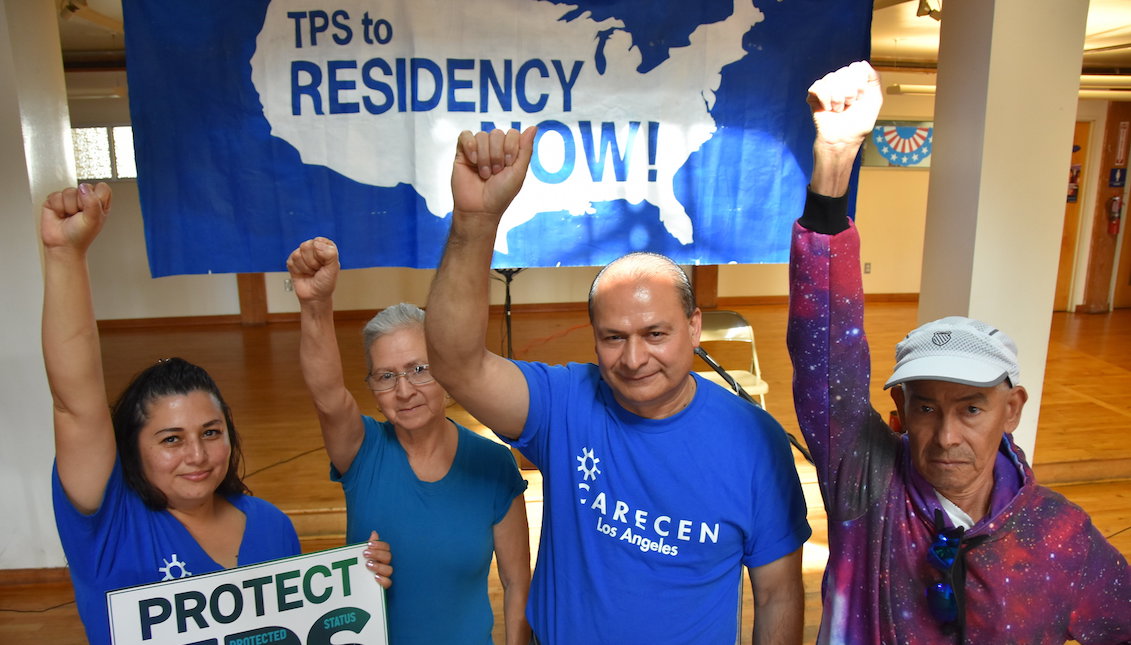
Nicaraguans no longer have Temporary Protected Status
The Department of Homeland Security has ended the Temporary Protection Status (TPS) for 2,500 Nicaraguans on Monday.
Around 2,500 Nicaraguans with provisional residencies must leave the United States in a period no longer than 14 months, explained the acting secretary of the Department of Homeland Security, Elaine Duke, through a statement.
“The decision to terminate TPS for Nicaragua was made after a review of the conditions upon which the country’s original 1999 designation were based,” reads the statement, "and whether those substantial but temporary conditions prevented Nicaragua from adequately handling the return of their nationals, as required by statute.”
In addition, and as the Department's communication continues, the government of Nicaragua has not requested the extension of the current TPS and, according to the information and the "recommendations received by a consultation process within the agency," Secretary Duke determined that the temporary causes referred to Nicaragua by the passage of hurricane Mitch (1998), are no longer valid.
According to the announcement on Monday, Nicaraguans will then have until January 5, 2019, to leave the US territory or change their residence status. In the same way, Secretary Duke refrained from making a decision regarding other citizens with the same type of protection - such as Hondurans or Haitians - whose fate will remain in the hands of her successor to the post.
According to some administration officials, and as reported by the Washington Post, Duke is aware of the delicate fact that both Hondurans and Nicaraguans under the TPS "have lived in the United States for more than two decades, and urged Congress to enact a permanent solution for a program that was considered temporary."
RELATED CONTENT
But last week, Secretary of State Rex Tillerson sent a letter to Duke authorizing the Department to "lift the protections" for Central Americans and Haitians, assuring that "unauthorized immigrants from those countries no longer had an exemption of deportation. "
Before the announcement, the Democratic caucus did not take long to speak out: the chair of the Congressional Hispanic Caucus, Michelle Lujan Grisham, condemned the actions of the Administration for "irresponsible" and assured that "they will separate families and overturn the lives of these hardworking individuals". "Deporting families that are contributing to the economic and social construction of our nation is not leadership, it is a reckless and cruel abuse of power," she said.
For her part, House Minority Leader Nancy Pelosi called the decision "a cowardly assault on thousands of families in communities nationwide" in what she called a "senseless prejudice."
In response to the accusations, the Trump administration said through its officials to be aware that the beneficiaries of the TPS "come from countries afflicted with poverty, corruption, and crimes, but those problems must be faced in a different way, and the return of migrants can help foster development in their countries of origin. "
Although the procedures that will be carried out once the lapse is completed are still unknown, it may coincide with the mechanism announced by the former Secretary of the Department of Homeland Security John F. Kelly when the TPS was renewed for Haitian citizens for six months during the month of May. At that time Kelly assured that the six-month period was for "the Haitian beneficiaries of the TPS and residents of the United States to put their papers in order and arrange their exit from the country."
Although the Department has the addresses, telephone numbers, and information of the beneficiaries, a senior government official told the Washington Post on Monday that Citizenship and Immigration Services will not automatically share personal information with the immigration enforcement officials, and that they will not be a priority for arrest or deportation.










LEAVE A COMMENT: